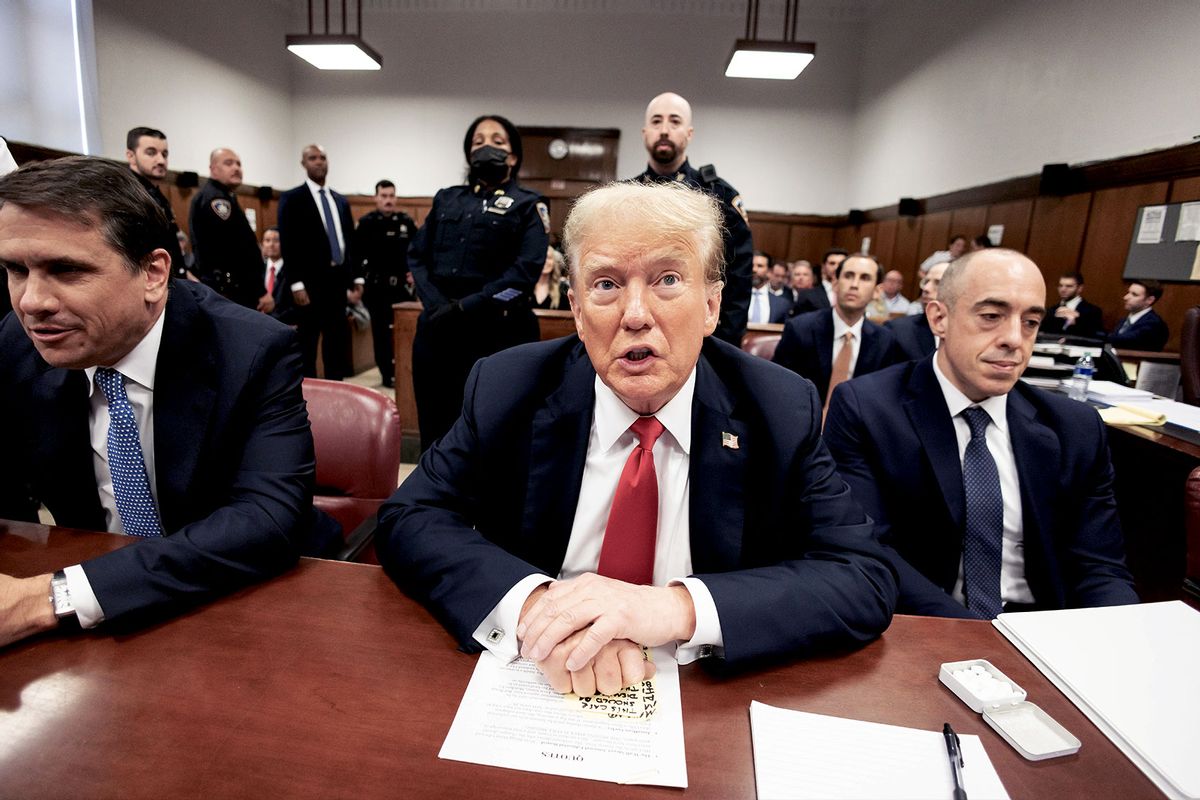Donald Trump is not behaving like someone who expects to be found "not guilty." In a series of posts over the Memorial Day weekend, the former president deviated from the norm of honoring soldiers who fought and died for the United States by instead posting on his website, Truth Social, about how unfair it is that standard courtroom procedures are not being bent in his favor.
Posting in all caps, Trump – facing 34 felony counts of falsifying business records to cover up a hush payment to an adult film star – on Monday raged against the order in which closing arguments will be made in his Manhattan trial. It is a "big advantage," he said, and "very unfair" that the prosecution gets to go second. "Why can't the defense go last?"
Whether he knows this and is just riling up gullible followers or if he simply never retained the information his defense counsel could surely provide, Politico's Kyle Cheney noted that Trump is here complaining about a fact of life "in virtually every criminal court." Per Cheney, "Prosecutors typically get a rebuttal during closings because [the] burden or proof lies with them, not [the] defense."
Trump, then, is complaining about an order that exists because of the far higher standard that prosecutors must meet. The defense only needs to sow doubt about the government's case, and it really only needs one juror to entertain the former president's argument that the case is a "witch hunt"; the prosecution must show that its case is not just probable, but prove it beyond a reasonable doubt.
"Trump is finally being treated like every other defendant," said Joyce Vance, a former U.S. attorney who has been following his hush money trial. "[R]eally," she argued, "that's what he objects to."
In another weekend rant about the case, Trump again opined that it was wrong to bring a case against him while he's running for president. If there was evidence of a crime, he wrote, referring to himself in the third person, "it should have been brought seven years ago, not in the middle of his Campaign for President."
We need your help to stay independent
That Trump was not charged years ago is indeed curious. In 2018, while Trump was president, his former fixer, Michael Cohen, was sentenced to three years in prison in part for his role in a criminal conspiracy. As the Department of Justice stated in a press release at the time, Cohen made payments "to silence two women" – Karen McDougal and Stormy Daniels – "who otherwise planned to speak publicly about their alleged affairs with a presidential candidate, thereby intending to influence the 2016 presidential election." The indictment of Cohen states that he did so in coordination with the Trump campaign, discussing "the fact, nature, and timing of the payments."
Trump was not himself charged at the time for a number of reasons, chief among them: He was president of the United States and, after the Cohen case, appointed an attorney general, William Barr, who purged the Department of Justice, forcing out the prosecutor who had brought the charges against his ex-attorney and replacing him with a Trump loyalist.
Since Trump is no longer president, and can no longer pick those charged with enforcing the law, he is now just another man who must stand before and be judged by it. For a man who has long enjoyed impunity, it is intolerable. And while he may be able to evade financial penalties, at least for a time, in this case his actual liberty is at stake: it is not inconceivable that, when closing arguments conclude this week, jurors return a guilty verdict and Judge Juan Merchan decides that this particular defendant deserves some time behind bars.
George Conway, a conservative attorney turned harsh critic of the former president, believes Trump is reacting to his loss of control. "The defendant," he posted on Threads, "is clearly in full panic mode."



Shares